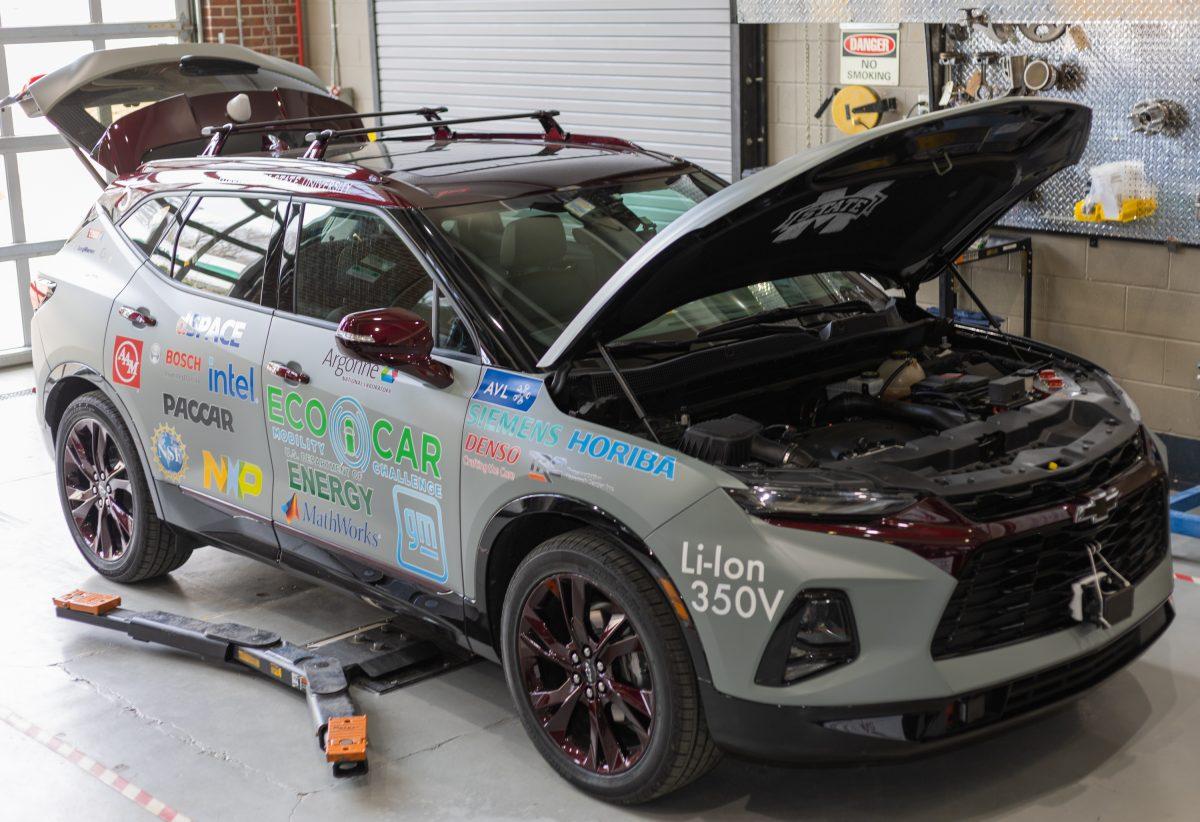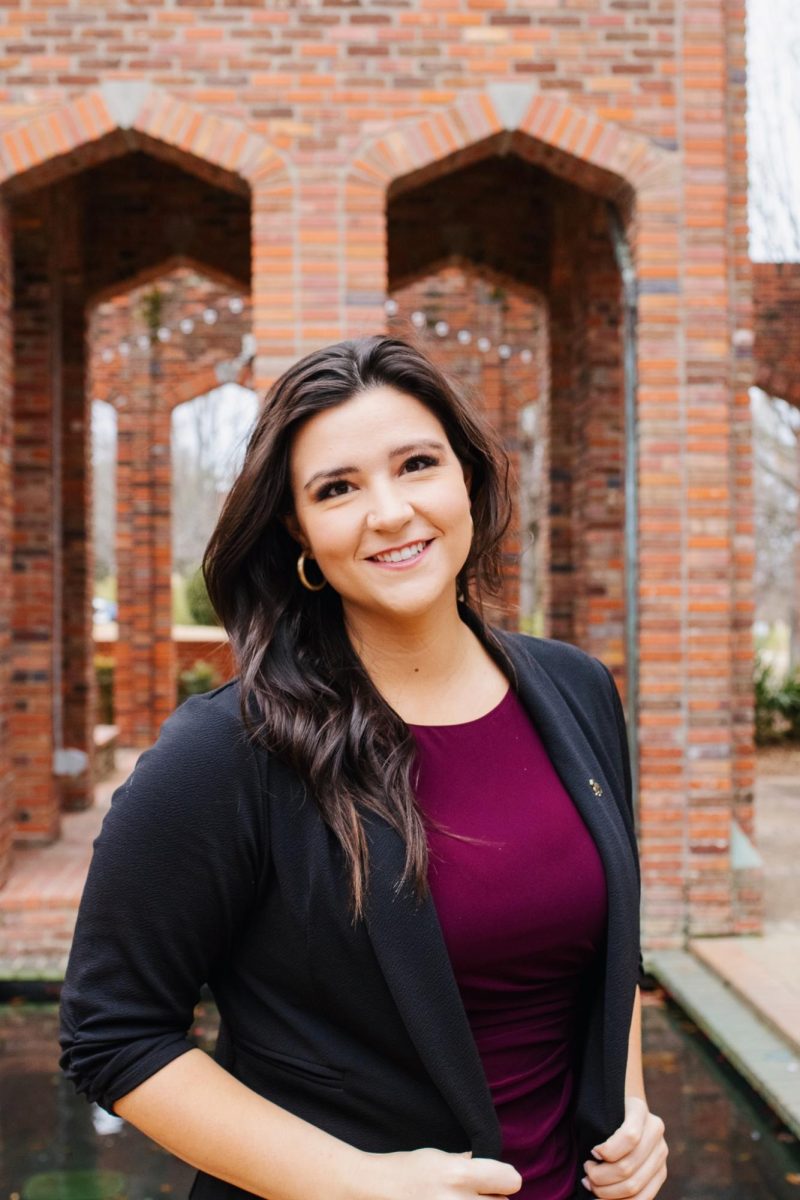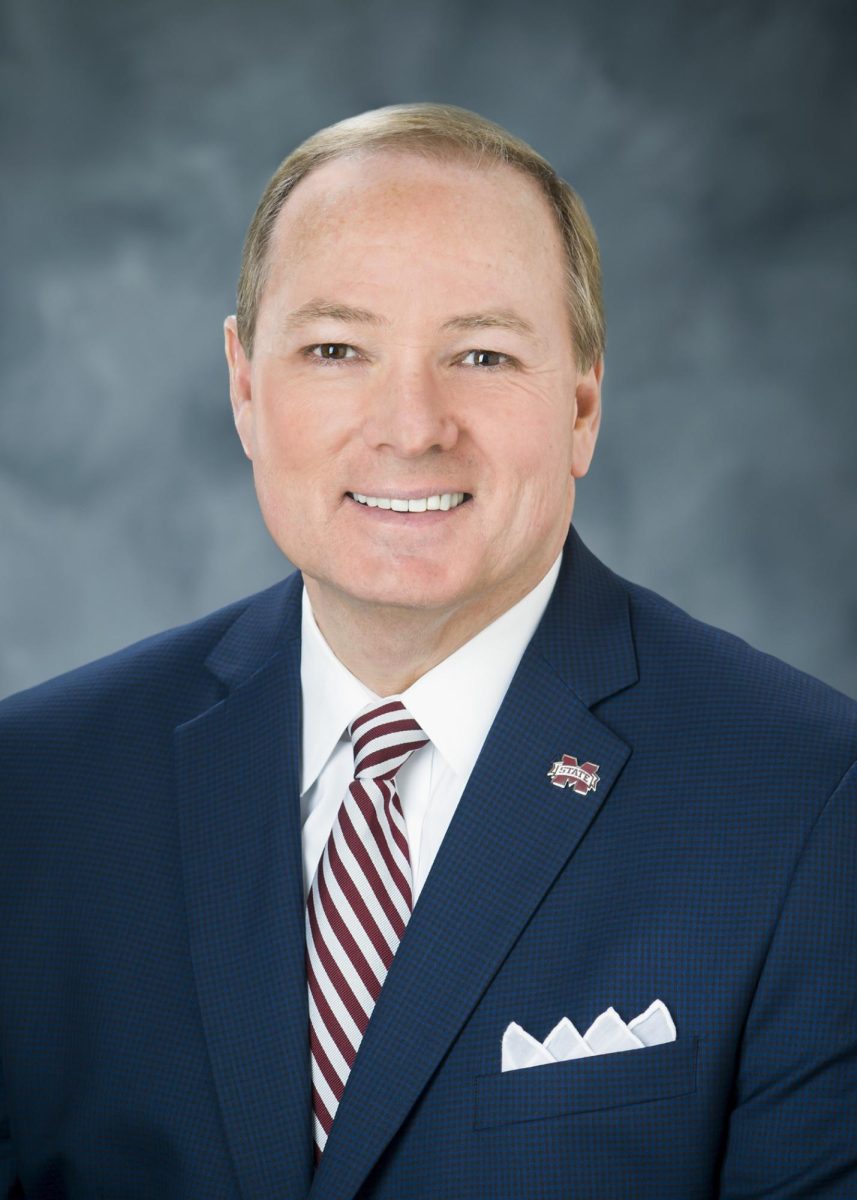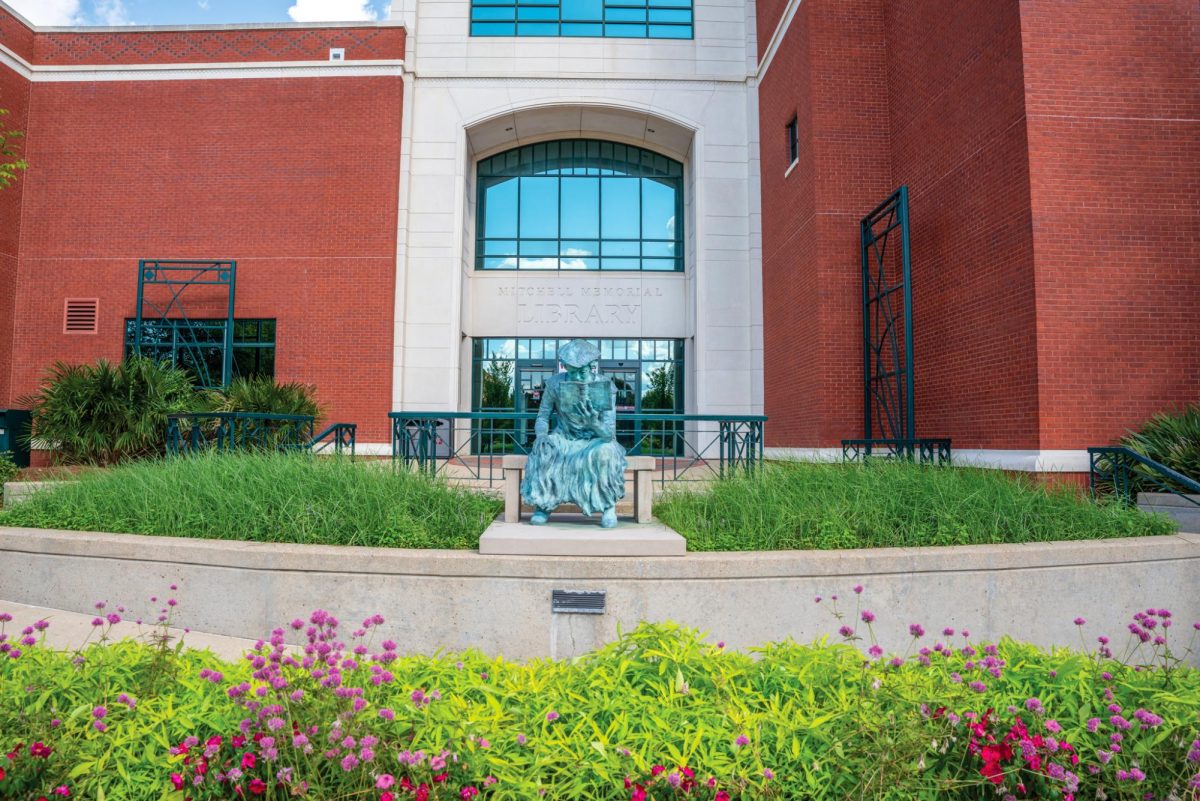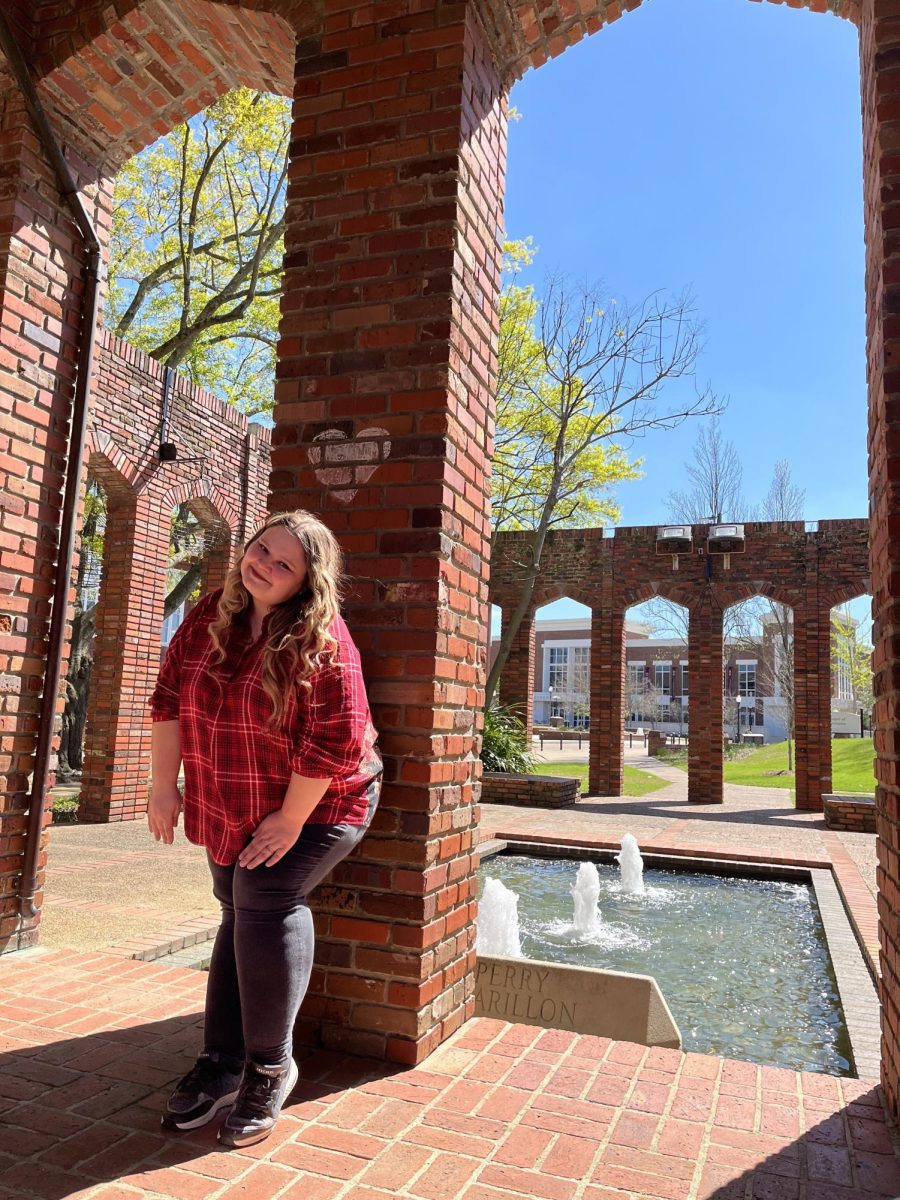For the last four years, the EcoCar team at Mississippi State University has been competing in the EcoCar Mobility Challenge, a nationwide competition that 11 different universities compete in to make fuel efficiency and safety improvements on a 2019 Chevrolet Blazer. This competition allows students to gain experience in a hands-on environment while working towards solving real problems in today’s world, like the fuel economy of vehicles.
The EcoCar team at MSU, which has members in 17 different majors, chose to transform the Blazer into a hybrid vehicle. While retaining some of the gas engine’s performance, the team implemented electric features to improve the fuel efficiency of the Chevrolet Blazer.
“The whole competition is about improving the fuel economy and going through and making it into a hybrid vehicle,” said lead faculty adviser and associate professor Randy Follett. “Using autonomous features to not only simplify driving but also to improve the fuel economy, they improved on the performance of the Blazer and bumped the fuel economy from 27 miles per gallon to around 33 now.”
Over the years, the team made many modifications to the Blazer. Under the hood, all stock components were ripped out and replaced with a four-cylinder, two-liter engine with a supercharger driving a nine-speed transmission. In the back of the vehicle, a custom battery pack provides high voltage power, which is converted to energy that can control the motor for the back tires.
“The front is gas-driven and the rear is electric-driven,” said engineering manager and graduate mechanical engineering student Vance Hudson. “We must constantly balance the use of one versus the other at any given time to optimize fuel economy and performance … If you’re just coasting, maybe the engine will stay at a low idle, but if you want a quick burst of power, that’s where the electric motor really comes in handy.”
According to Hudson, the MSU EcoCar team is near the front of the pack as the end of the competition is near, but this has not always been the case. The team struggled the first year due to complications with components and managed to bounce back with hard work and long hours.
“We were in a situation where the first electric motor we chose didn’t work out. So, we had to make a change in year two that penalized us but allowed us to keep moving forward,” Follett said. “Now, they’re in a position where they have got more miles on their car than any other team— significantly more miles. We’ve probably put more miles on the car this year than most of the teams have put on in total.”
As the MSU EcoCar team nears the end of the competition, they get to see all their hard work pay off. Rachel Hendricks, MSU graduate student and project manager of the EcoCar team, said that the team is set up to perform well in the last month of the competition.
“It’s been very exciting to see everybody’s hard work come together,” Hendricks said. “We’ve hit all of our targets in things like fuel economy and zero to 60. It’s just been very rewarding, especially as the project manager, to see all the pieces come together to create the final Blazer.”
While the MSU EcoCar team is making the final adjustments to the Blazer, gas prices are soaring nationwide. Vance Hudson said this makes the EcoCar project all the more relevant in today’s climate and is why the U.S. Department of Energy has continued to do challenges like EcoCar.
Competitions like EcoCar are also important because they strengthen the workforce by giving a new generation of engineers the experience they need to thrive in the workforce. Follett said EcoCar members have a 100% success rate of finding jobs and average a higher salary than non-EcoCar team members. The experience in MSU’s own Center for Advanced Vehicular Systems can be a valuable asset to future engineers, Follet said.
While this EcoCar competition is set to end soon, the team is always eager to have more teammates for the next competition. Rachel Hendricks advises anyone interested in joining the EcoCar team to email [email protected].
This 2019 Chevrolet Blazer is being reworked by EcoCar team members to improve its fuel efficiency and safety for the competition.



















































































